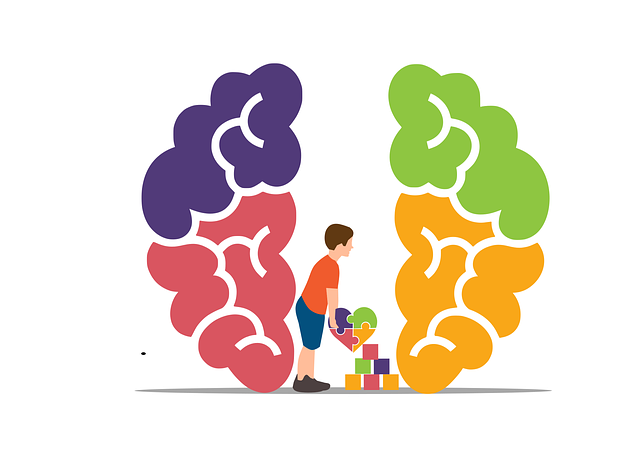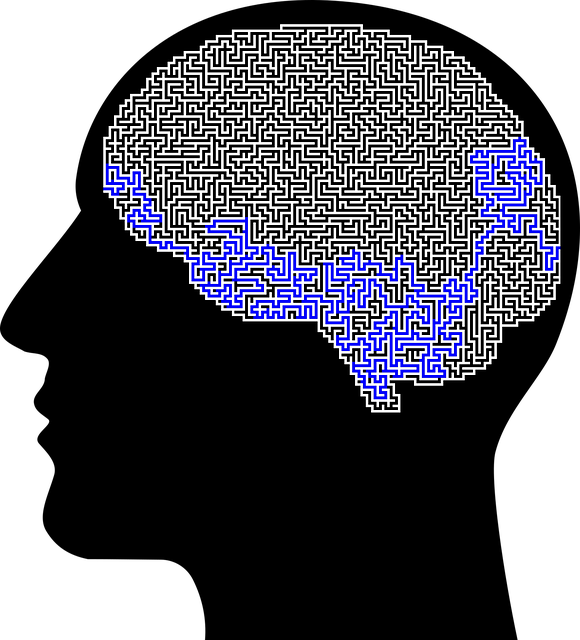Crisis Intervention Teams (CITS), enhanced by Highlands Ranch Stress Management Therapy principles, offer specialized support for emotional crises. Their training programs equip professionals with conflict resolution, compassion cultivation and stress management skills, improving crisis care quality. Integrating mental health awareness, burnout prevention and de-escalation techniques, these teams provide tailored interventions building resilience and promoting positive coping strategies. In real-world settings, CIT training empowers individuals to recognize early warning signs, prevent severe outcomes and contribute to broader mental health awareness by reducing stigma.
Crisis intervention team (CIT) training programs are a crucial resource for community mental health. These specialized teams play a vital role in responding to and de-escalating crises, offering immediate support and preventing adverse outcomes. This article explores the significance of CITs, focusing on the integral role of Highlands Ranch Stress Management Therapy in their comprehensive training. We’ll delve into key components of effective training, real-world applications, and the profound benefits of implementing trained CITs.
- Understanding Crisis Intervention Teams: A Vital Resource in Community Mental Health
- The Role of Highlands Ranch Stress Management Therapy in Training Programs
- Key Components of Effective Crisis Intervention Team Training
- Implementation and Benefits: Real-World Applications of Trained Crisis Intervention Teams
Understanding Crisis Intervention Teams: A Vital Resource in Community Mental Health

In the realm of community mental health, Crisis Intervention Teams (CITS) stand as a vital resource, playing a crucial role in addressing acute emotional crises. These specialized teams, often comprised of trained professionals from various disciplines, are designed to swiftly and effectively respond to individuals experiencing severe stress, anxiety, or other psychological distress. By integrating Highlands Ranch Stress Management Therapy principles into their protocols, CITS can offer tailored support that cultivates resilience and promotes positive coping mechanisms.
The importance of CIT training programs cannot be overstated. They equip participants with essential tools such as Conflict Resolution Techniques and Compassion Cultivation Practices, enabling them to handle crises with empathy and skill. Moreover, these workshops foster a collaborative environment where mental health professionals from different backgrounds share knowledge and best practices, ultimately enhancing the overall quality of care delivered to those in need within their communities.
The Role of Highlands Ranch Stress Management Therapy in Training Programs

Highlands Ranch Stress Management Therapy plays a pivotal role in modern crisis intervention team training programs. This therapeutic approach is designed to equip participants with effective strategies for handling high-stress situations, fostering emotional resilience, and promoting mental well-being. Through interactive simulations and evidence-based techniques, individuals learn to recognize and manage stress triggers, enhancing their ability to respond calmly under pressure.
The integration of Highlands Ranch Stress Management Therapy into these programs not only strengthens the preparedness of crisis intervention teams but also contributes to broader initiatives like Public Awareness Campaigns Development and Mental Health Policy Analysis and Advocacy. By prioritizing stress management, organizations can create more supportive environments, leading to improved public health outcomes and a greater emphasis on mental well-being in community settings.
Key Components of Effective Crisis Intervention Team Training

Effective crisis intervention team training programs incorporate several key components to ensure preparedness and success in high-stress situations. Firstly, they emphasize Mental Health Awareness, equipping team members with a comprehensive understanding of various mental health conditions and their impact on individuals and communities. This knowledge enables better recognition and response during crises.
Additionally, these programs delve into Burnout Prevention Strategies for Healthcare Providers, recognizing the unique challenges healthcare professionals face in stressful environments. By integrating strategies to promote self-care, resilience, and effective communication, crisis intervention teams can maintain their own well-being while supporting others. Conflict Resolution Techniques are another vital aspect, teaching team members how to de-escalate tensions, mediate disputes, and foster a collaborative environment, even under intense pressure. Through realistic simulations and interactive exercises, Highlands Ranch Stress Management Therapy techniques are honed, ensuring the team is adept at providing timely and effective support in crisis situations.
Implementation and Benefits: Real-World Applications of Trained Crisis Intervention Teams

In real-world settings, Crisis Intervention Team (CIT) training programs prove invaluable. Trained teams equipped with evidence-based strategies can effectively respond to individuals experiencing crisis, whether it’s a mental health episode, substance abuse, or other challenging situations. In Highlands Ranch Stress Management Therapy, for instance, CIT members learn to assess and de-escalate high-risk scenarios, fostering a sense of safety and supporting the development of inner strength in those in need. By promoting empathy building strategies, these teams can provide compassionate care tailored to each individual’s unique needs, ultimately enhancing community well-being.
The benefits extend beyond immediate crisis situations. CIT training equips individuals with the skills to recognize early warning signs of distress, enabling proactive intervention and potentially preventing more severe outcomes. This collaborative approach not only strengthens relationships within communities but also contributes to broader Mental Health Awareness by reducing stigma and promoting understanding of complex issues surrounding mental health.
Crisis intervention team (CIT) training programs, enriched by approaches like Highlands Ranch Stress Management Therapy, are invaluable tools in community mental health. By focusing on key components such as de-escalation techniques, cultural competency, and teamwork, these programs empower participants to effectively respond to crises. The implementation of trained CITs brings significant benefits, demonstrating their potential to improve outcomes, reduce harm, and foster more resilient communities. With real-world applications proven effective, investing in comprehensive CIT training is a crucial step towards enhancing mental health support systems.














